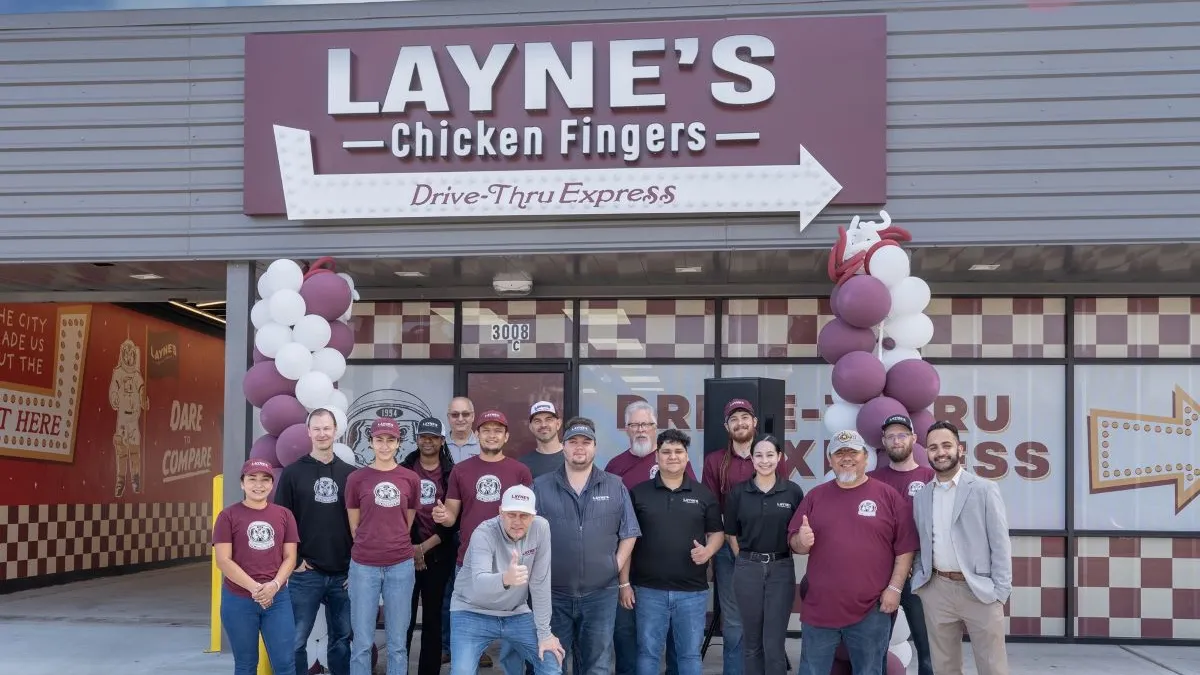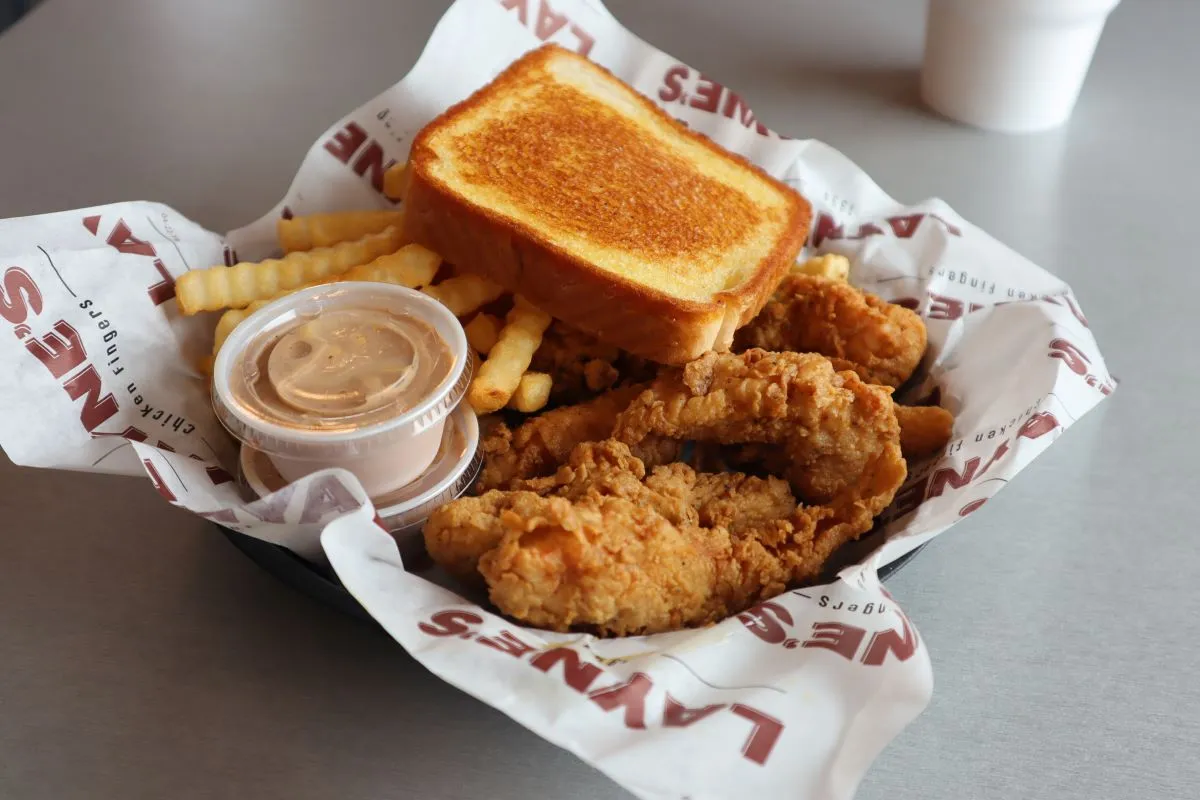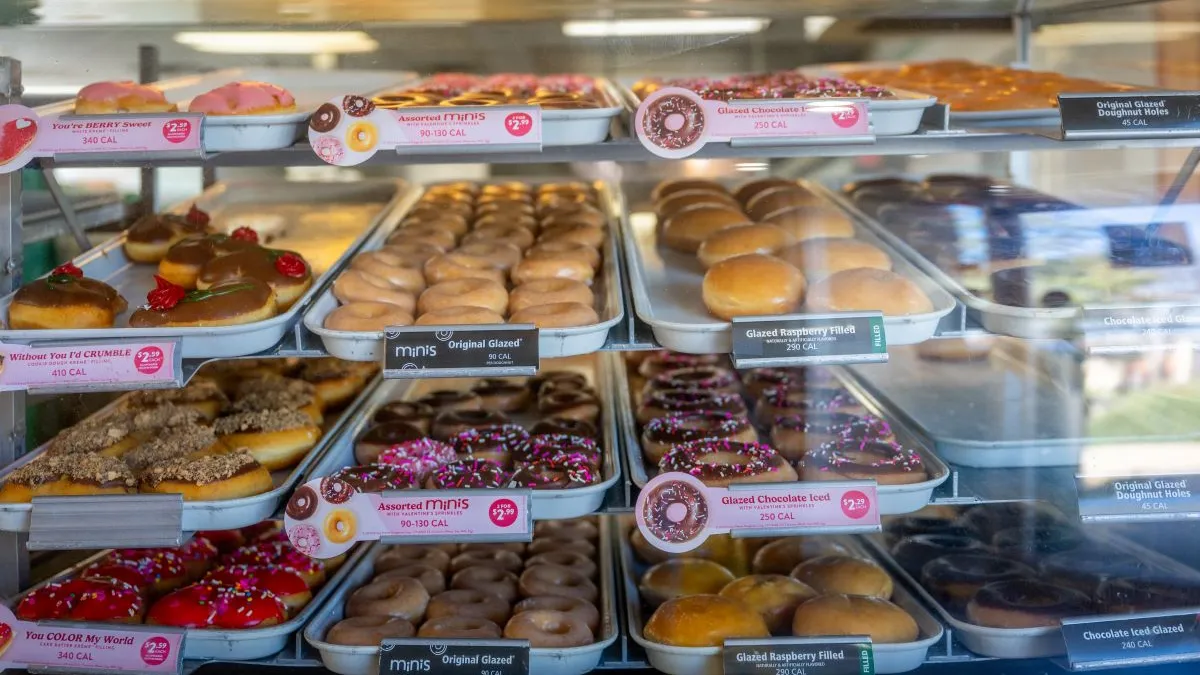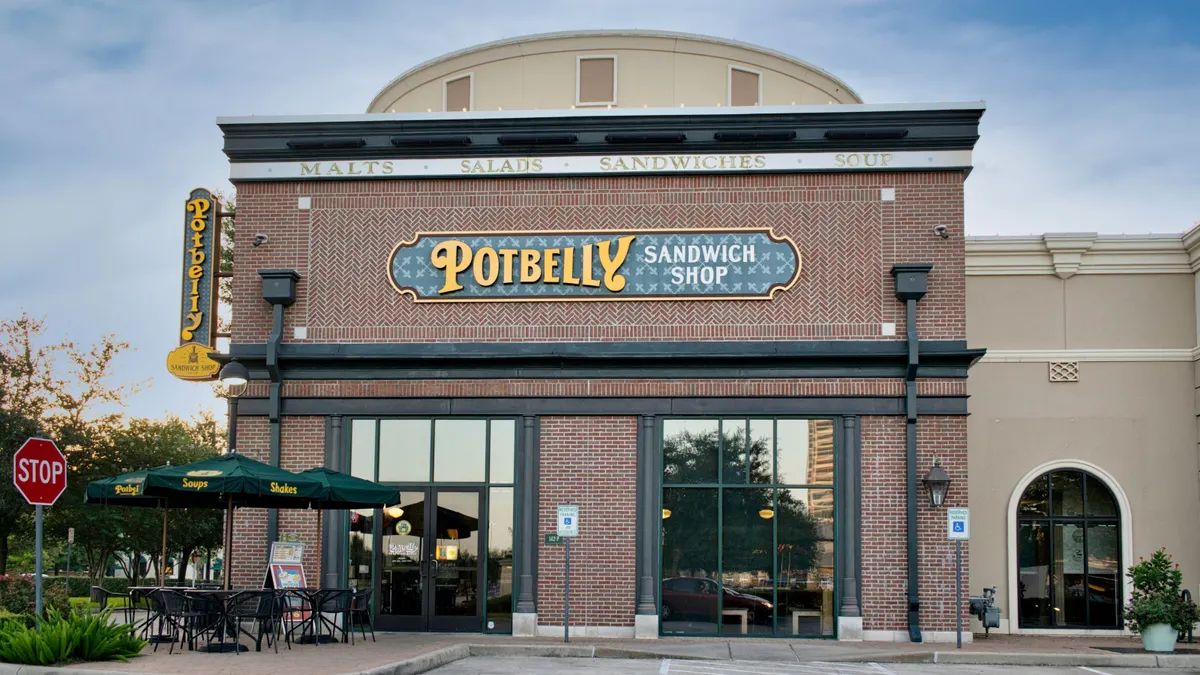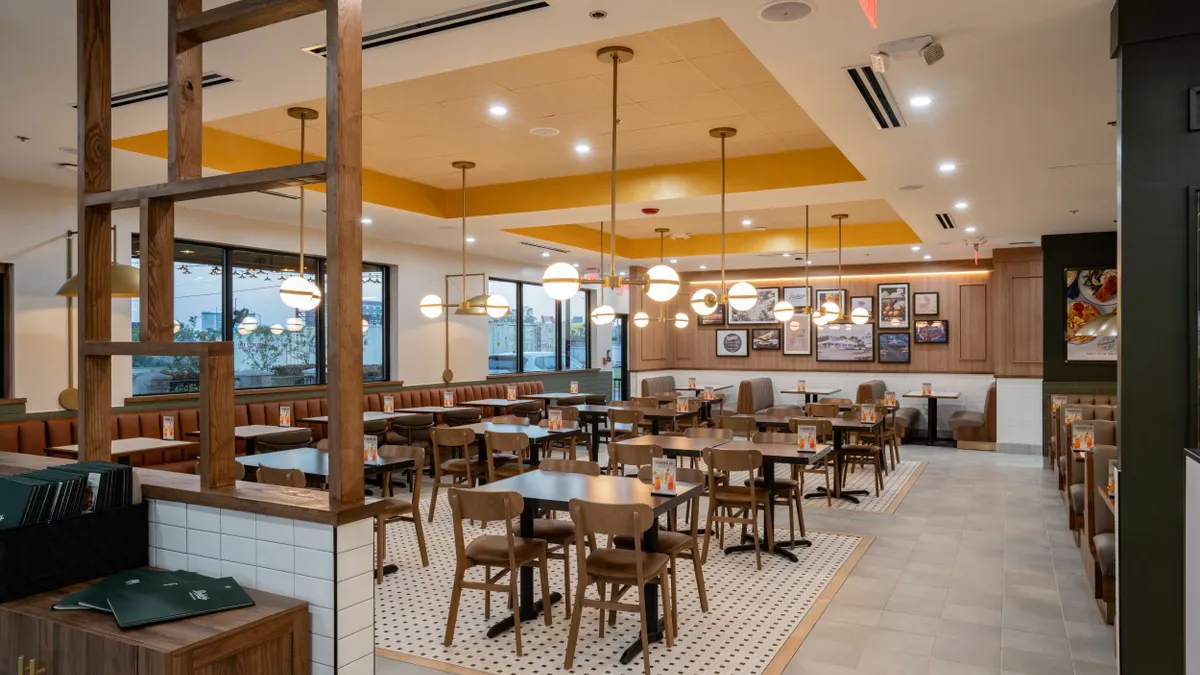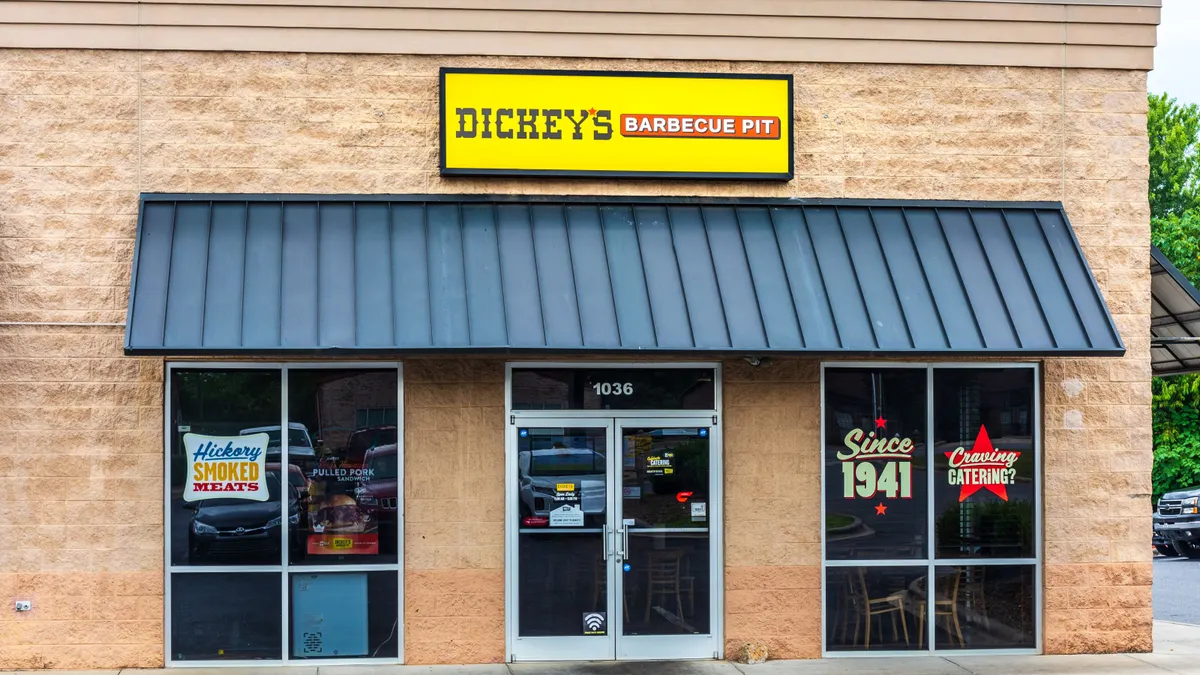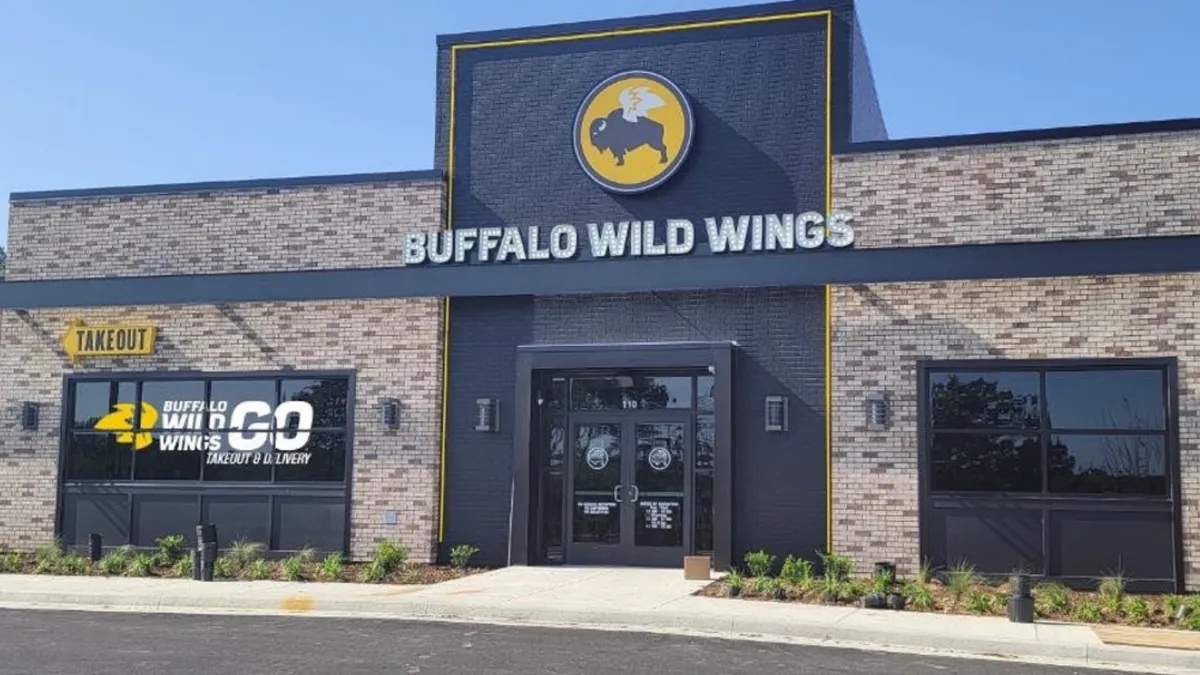Editor’s note: This article is part of an ongoing franchise series, which highlights brands that are new to or aggressively expanding via franchising. Is your restaurant starting to franchise? Email us at [email protected].
When Mike Layne attended Texas A&M in the 1990s, he noticed that College Station, Texas, was missing something. He couldn’t find any good chicken tender places. So in 1994, he opened a small restaurant, the first Layne’s Chicken Fingers, across the street from the university, said Layne’s COO Samir Wattar.
In 2017, Garret Reed, an experienced restaurant executive, and his business partner Matt O’Reilly bought the brand with the intention to franchise. At that point, the company had three restaurants. Reed and O’Reilly began opening new locations in Texas, including Dallas-Fort Worth.
A year later, Wattar came across the restaurant brand when a location opened near his home in Frisco, Texas.
“What attracted me the most was the environment [and] how I felt when I walked into the restaurant, and the way the employees were behaving and reacting to my visit,” he said. “When I tried the food, that’s what sold me the most. … I became a regular.”
Wattar met Layne’s owners through a friend and became chief operating officer in 2021. He has experience in restaurant operations, training, supply chain and franchise development. Prior to Layne’s, he worked at Fuzzy’s Taco Shop as VP of supply chain and franchise development. He also was an executive at Mooyah’s Burgers, Fries and Shakes and helped grow the brand from 32 units to over 100, he said.
Since joining the company, Wattar helped prepare the brand to aggressively franchise. That meant going back to the basics and ensuring that it can best service not just the customers, but also the franchisee with operational, marketing and supply chain support. For example, its College Station franchisee had a different distributor than the Dallas-Fort Worth operator, which Wattar streamlined so the brand has only one vendor and one distributor, he said. Layne’s Chicken Fingers’ sister company Main & Main Capital Group, a real estate and development company founded in 2004 that has developed fast casual brands, provides expertise for real estate.
The company also built a robust training program for managers that is about four weeks long. It also offers a weeklong training for franchisees within a corporate location to show the operator everything about the brand.
The manager training, which is completed at Layne’s Chicken Fingers’ headquarters in Dallas, takes the manager through every job from back office tasks, which involves learning the store’s food and labor costs, to on-the-job training such as how to greet guests and how to fry and serve the chicken.
Managers are also trained on the meaning behind the chain’s logo, dubbed Astro Chicken, of a chicken wearing a space helmet. The image symbolizes the zaniness of a chicken, which tries to fly,but can’t, to the seriousness of taking on and completing a mission like flying into space, Wattar said.
Astro Chicken also falls within its four brand pillars: “hot food fast,” “perfect every time,” “15 to one” (meaning service has to be 15 times better than the food) and “everything we do is over the top.” The last pillar means that everything the company does, from how it treats its employees to how it serves its guests and franchisees, exceeds expectations, he said.
Customer service is a core component of the company’s culture. Employees aren’t given scripts on what to say to customers and are expected to act naturally, Wattar said. If they see a mother with a stroller coming in the door, an employee typically goes to help them with the door. If a customer ordered two or three meals, a staff member will typically help the customer carry the bags to the car, Wattar said. At the drive-thru, they are conversational, saying things like “How can I kick it up for you today?”
The brand, which now has 10 units, started selling franchised units last year and has since sold 63 units to eight operators, Wattar said. One of its newest Houston locations, which opened in a former liquor store in March, offers drive-thru only service — a first for the system.
The brand will also open in inline, endcap and drive-thru locations depending on the real estate parcel and what is around it. For example, a franchisee found a 950-square-foot inline location, which is much smaller than the average Layne’s Chicken Fingers location, which is around 2,200 square feet with a drive-thru. But this format was similar to other restaurants in the area, so Layne’s bought the site and it functions more like a fast casual, Wattar said.
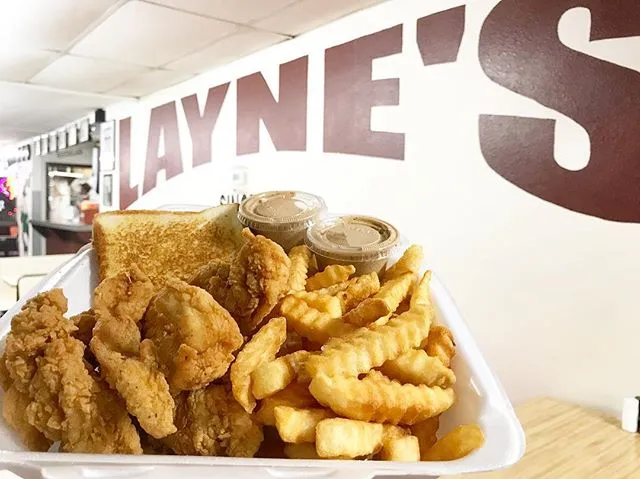
Development plans: Layne’s Chicken Fingers’ goal is to have 50 restaurants open by 2027, Wattar said. While the company is selling units outside of Texas, it would like to sell out the state as it has done in Dallas-Fort Worth, Houston and Austin. Its first restaurant outside of Texas is expected to open in May next to the University of West Virginia. It has also sold units in Pittsburgh, Northern Virginia and Madison, Wisconsin, he said.
Ideal franchisees: The company partners with multi-unit operators that commit to a minimum of three units, Wattar said. When it first meets a prospective operator, Layne’s Chicken Fingers assesses whether the franchisee has the infrastructure, financial wherewithal and passion to support the brand.


